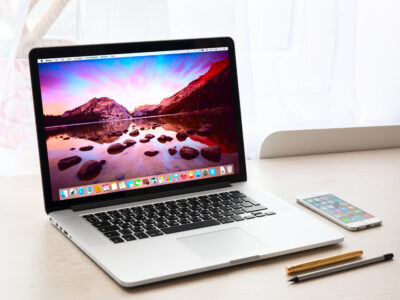 Choosing the right smartphone for your needs can become a daunting task when considering which operating system to use. Both Google’s Android and Apple’s iOS offer a variety of excellent features, which is why it pays to look at smartphone reviews to make an informed decision. Here are some of the issues that reviewers address when they compare the differences between the Android and the iPhone:
Choosing the right smartphone for your needs can become a daunting task when considering which operating system to use. Both Google’s Android and Apple’s iOS offer a variety of excellent features, which is why it pays to look at smartphone reviews to make an informed decision. Here are some of the issues that reviewers address when they compare the differences between the Android and the iPhone:
1. Hardware
Comparing hardware differences between Android phones and the iPhone can be tricky considering that many manufacturers produce Android phones, with the latest of these being the Samsung Galaxy Nexus. As the first smartphone to run the Android 4 Ice Cream Sandwich operating system, the Nexus boasts fast processing speeds as well as a giant 4.6” screen with the highest resolution seen with Android phones. When tested with benchmark software, the Nexus reached faster speeds using Google Chrome, but the iPhone still outperforms it when it comes to graphics. Smartphone reviews have also pointed out that the iPhone’s retina display still beats all Android phones in terms of sharpness, though the Galaxy’s Super AMOLED display is also impressive.
2. User Interface
Now that Google has integrated its tablet operating system with smartphones, the new Ice Cream Sandwich OS offers a much smoother experience with the same level of customization. ICS now features resizable widgets and more sorting options. Widgets, which allow users to look at bite-sized pieces of data without having to open the app, offer a superior experience to the iPhone’s apps due to their customizability. Both operating systems have borrowed a great deal from either other, however, as iPhone now uses the drop-down notifications found in Android, while the Android can now switch apps with a swipe like the iPhone. The decision for most users, then, is whether or not they want the Android’s customization or the iPhone’s simple and solid interface.
3. Apps
The iPhone still surpasses Android when it comes to the quality and number of apps, though the Android marketplace has done much to catch up. App programmers enjoy the freedom that Android offers, since Google does not require that new apps pass company approval. While this has led to massive growth in the number of available Android apps, reviewers claim that the quality is lower overall and that some apps are actually malicious programs.
4. Integration
Both Android and iPhone use cloud computing to share and sync data with a variety of devices, but Android phones have had this technology for a longer period. Google Cloud focuses on integrating various web services, while Apple’s iCloud is more app-based, meaning that sharing is tied to the app instead of to the public web. Google clearly has a more open system, though iCloud benefits from seamless integration.
5. Siri and Android Beam
Lastly, smartphone reviews pick the iPhone’s Siri voice recognition over the Android Beam in terms of usefulness, as Siri responds to voice commands at a near- “star trek” level of performance. The Android Beam, which allows two compatible Android phones in close proximity to transfer data rapidly, is advanced when it comes to messaging and mobile payments, but widespread use of this technology remains to be seen.
Both the Android and the iPhone take the cake when it comes to offering what users want. Those who desire more customization should choose the Android, while others who want a solid design with superior graphics should be interested in the iPhone.
Brandi Tolleson is a prolific freelance writer covering technology, gadgets and media.










Comments